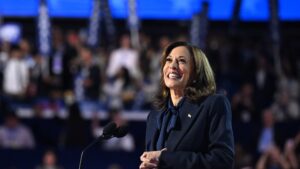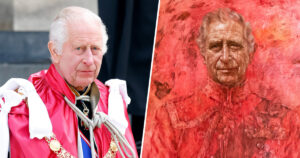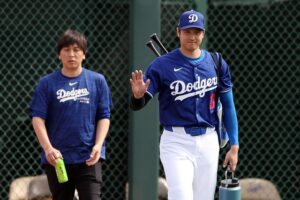JFK: Still taking the measure of the man
Saturday, November 22nd, 2025The following is an update of a column I wrote 12 years ago. I am re-posting it today on the 62nd anniversary of the assassination of president John F. Kennedy because of its significance in my life and because of the times we live in. Would things have been different if Kennedy had lived to continue serving? I have no way of knowing. I’d like to think the answer is yes. Joe Biden was the oldest elected president this country has ever had. Kennedy was the youngest. They shared the same dedication to protecting our democracy. I continue to celebrate Kennedy on the birth date I share with him and I also honor his memory on the anniversary of the day he was taken from us. A day history was altered forever.
By Bob Gaydos
The first editorial I wrote for the Times Herald-Record in Middletown, N.Y., appeared on the 20th anniversary of the assassination of John F. Kennedy. I wrote the headline, too: “The measure of the man.”
Trying to “measure” the meaning of the life of a man who was literally loved and idolized by millions of people is no easy task, especially for a rookie editorial writer’s debut effort. But that’s what newspapers do and, in truth, I took it as a good omen that remembering JFK was my first assignment. He was a hero to me as to many young men my age when he was elected president. It was a combination of things: his youth, his wit, his easy-going style, his intelligence, his words, his sense of justice. Plus, we shared the same birthdate: May 29.
As fate would have it, JFK would come to be remembered, not on his birthday, but on the anniversary of his death. And not so much for what Americans received for having him as president for 1,000 days, but rather for what we lost by not having him much longer.
That first editorial said, in essence, that it would take more than 20 years to measure the meaning of the man. It acknowledged the things we had learned about JFK in the years since the shooting in Dallas — the flaws that made him human — as well as what I felt were his positive contributions. Thirty years later, no longer a rookie editorial writer — indeed, retired after 23 years of writing editorials — with Nov. 22 approaching, I realized I had to write about JFK 50 years after his death (because that’s what old newspaper guys do). Before I started, I asked one of my reliable sounding boards, my son, Zack, what he knew about JFK. Zack was 19 at the time and better informed than a lot of young people his age, so I figured his answer would provide me with a fair sense of what our education system had been telling kids about Kennedy.
“He was the first Catholic president,” Zack said. Correct. “He had an affair with Marilyn Monroe.” Uh, correct. ‘There’s still some theories that there was more than one shooter.” Right. “Do you think the Kevin Costner movie (“JFK,” directed by Oliver Stone) was true?” Well, the people portrayed were real. “The Bay of Pigs didn’t go too well.” No, it didn’t. I took the opportunity to point out that Cuba was the site, not only of Kennedy’s biggest failure in global affairs, but also his biggest success.
I was 22 years old when the world stood at the brink of a nuclear war over the presence of Soviet missile-launching sites in Cuba, aimed at the United States. I was a senior in college and knew full well, as did all my classmates, than no 2-S deferment was going to exempt me from what might happen if the Soviets did not — as Kennedy demanded — remove their missiles. Kennedy ordered the U.S. Navy to blockade Cuba to prevent the shipment of Soviet missiles and equipment. Nikita Khrushchev, Soviet president, who had initially denied the existence of the missile sites, sent a naval fleet to Cuba, loaded with supplies and armed for battle. As the world watched and waited and prayed, Kennedy and Khrushchev exchanged messages. Kennedy prevailed. The Soviet fleet stopped short of Cuba and turned around. I lived to write this remembrance. Kennedy was dead not long after.
So here I am 62 years later, still looking to take the measure of the man and still wondering how that is possible. Kennedy had the gift of engagement. He appeared to be comfortable with whomever he was speaking. He had tremendous appeal to young people, being so different from the older, stodgier presidents who preceded him. He created the Peace Corps — a legacy that continues to this day with not enough fanfare. He made many Americans — and this is not a small thing — truly proud to be Americans. Not in an arrogant, flag-waving, we-know-better-than-you way. Just proud. And he cheated on his wife and kept his serious health problems a secret from us and sometimes needed to be prodded by his brother, Bobby (another tragic loss) to take the proper (courageous) stand on issues.
So the question I still ask myself is, what might JFK have done, what might he have meant to America and the world, if he had lived longer? What did we lose at Dealey Plaza? Certainly, whatever innocence we still possessed. The wind was sucked from our sails as a nation and our domestic politics have slowly and steadily deteriorated into such partisanship that it is virtually impossible for any president to speak to the minds and hearts of a majority of Americans the way Kennedy did. Maybe it would have happened even if Kennedy had lived a longer life and gone on to be an ambassador to the world of what America stands for. Or maybe not.
It dawns on me in writing this that it is an ultimately frustrating task to try to take the measure of another man or woman. I know what JFK meant to me personally. I know a lot of others feel similarly and others do not. I know what history has recorded (he was also the youngest man to be elected president) and what the tabloids have told us. I have a sense of what I would like to think Kennedy would ultimately have meant had he not died so young. But it’s only speculation.
The only man I can truly take the measure of is myself. It is 62 years since that morning when I was waiting at home to go to Fort Dix, N.J., to begin six months of active duty training. How do I measure up today? That’s a question I still work on every day. It wasn’t always thus, but the years have a way of insisting on perspective. Maybe the answer will appear in some other writing. I have neither the space nor the inclination to do so here. I will say that, on balance, I’ll probably give myself a passing grade, but there’s still some stuff I’m learning. That’s a lesson in itself. For now, I’m through trying to take the measure of JFK, as man or president. Let the historians have at it. I’m going to try to take his advice and ask not what life can do for me, but what I can continue to contribute to life. And I’m also going to continue to celebrate him not on the date he died, but on the date we both were born.








